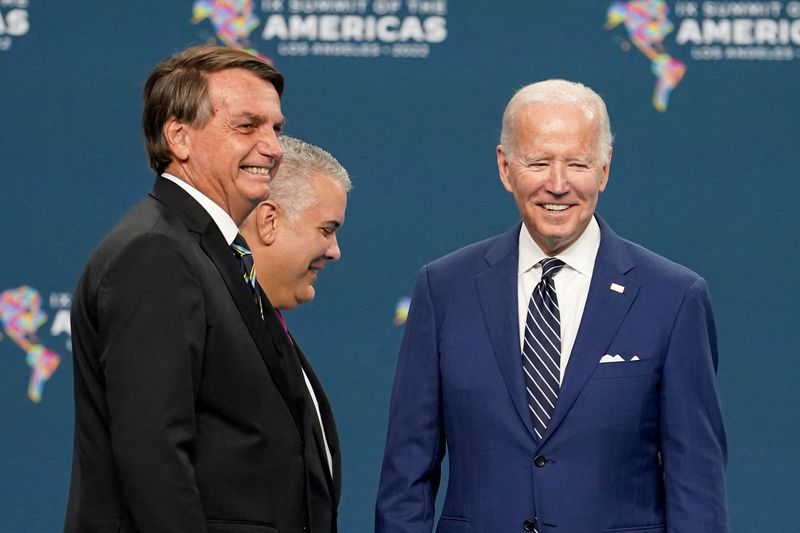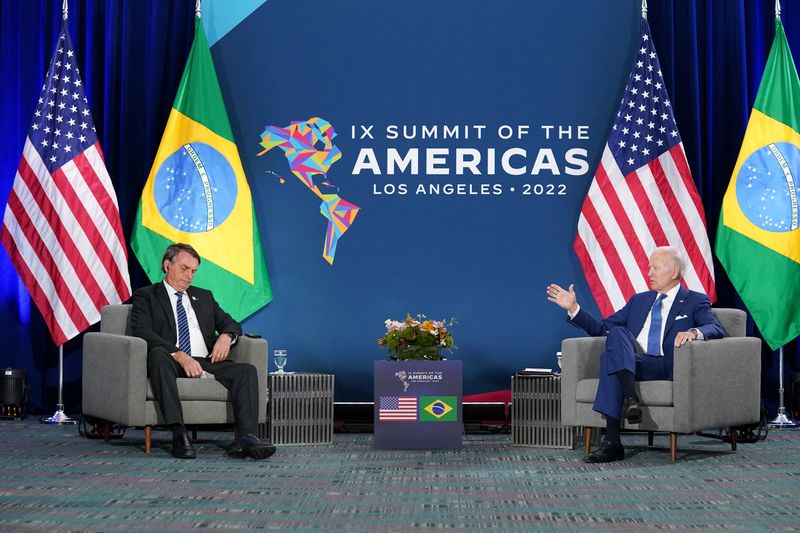By Lisandra Paraguassu
LOS ANGELES (Reuters) -U.S. President Joe Biden has promised his Brazilian counterpart Jair Bolsonaro the United States will reconsider tariffs levied on Brazilian steel as they met on Thursday, two Brazilian government sources said.
Although no decisions were made, Bolsonaro left the meeting with a promise from Biden that the issue will be analyzed in meetings between the two countries in the coming months.
"President Biden said he had no details on the issue right now, but would check in and the matter would be taken up with the technical teams of the two countries as soon as possible," one of the sources said.
The subject was discussed during the private meeting between the two presidents on Thursday, where only the Brazilian chancellor, Carlos Franca, and U.S. Secretary of State, Antony Blinken were also in attendance.
"We have had signs that this issue must be addressed. The truth is that the one who is benefiting from this tariff now is Russia," said the other source. "The expectation is that this will be resolved quickly."
Biden and Bolsonaro were at the Summit of the Americas in Los Angeles in what had been expected to be an "awkward" meeting.
The quotas for Brazilian steel imports were created in 2018 during Donald Trump's administration and establish that Brazil has the right to export part of the product without import taxes, but the Brazilian government wants a return to the previous policy, under which there were no taxes.
At current values, Brazil is entitled to export a quota of 3.5 million tons of steel without the tariff. According to sources Reuters spoke to, Brazil currently exports quantities close to the current quota to the United States, impeding the expansion of Brazilian business.

Aco Brasil, a lobby group for steel producers, expects the revision of the quotas "to happen this year," said the group's chief executive Marco Polo de Mello Lopes.
Steelmakers were waiting for Bolsonaro and Biden to meet to start negotiations for the revision of the quotas, otherwise it would be "unthinkable if the relationship was under stress," Lopes said.
